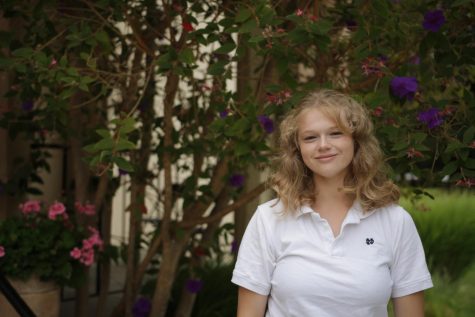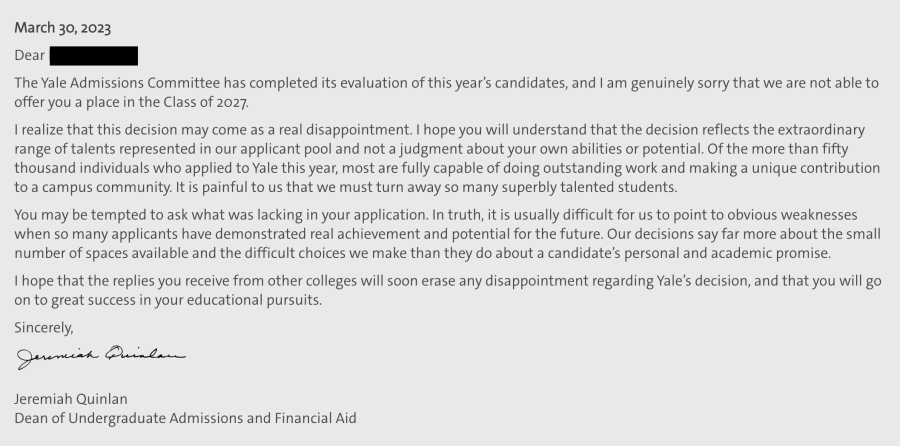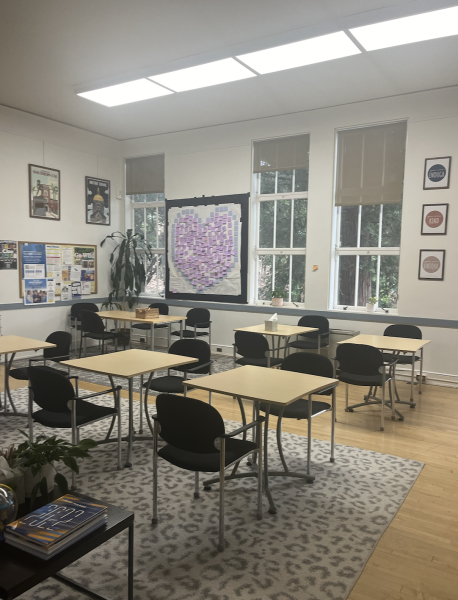The college process is worse than it seems
The Catalyst / Laure
College rejections often discourage and dishearten students during the application process.
It goes without saying that applying to colleges is an arduous process. Essays, letters of recommendation, deciding where to apply all make the task daunting. NDB students are lucky to have a large support system at school between teachers and counselors. Nonetheless, for those approaching the demanding era of applications, it is important to provide caution that the process is much more difficult than it appears.
To put one’s entire life on paper is an impossible task. Unfortunately, that is exactly what is asked of students. They must capture their happiest moments, greatest successes and most complex hardships in essays and supplemental questions. Sometimes, they are asked to look back to the darkest point in their lives and say what good they did with those times, a difficult taks for teenagers.
Aside from the emotional difficulties of the process, it is easy to underestimate the sheer amount of time each application requires-multiplied by an average 10 to 15 schools. While the Common Application, UC Application, and Questbridge system all work to consolidate resources by putting materials in one place, oftentimes, plentiful supplemental essays and selecting which information to provide to which school slow down the process significantly, making college applications comparable in time consumption to an entire additional AP or honors course.
This task becomes even more difficult when marginalizing life circumstances intensify struggles. Every admissions officer doesn’t need to relate to every experience of the applicants they evaluate, but when students are at a systemic disadvantage on the basis of their marginalized identities, readers fall short. In 2022, the National Association of College Admission and Counseling determined that a staggering 71 percent of admissions counselors are white. Students of color are not alone in their disadvantage. Pricey private counselors and standardized test services enlarge the gap between those who can and can’t afford support. These factors create an atmosphere in which a student’s fate seems to be predetermined.
There is hope, however. While the process is lengthy and nerve wracking, guidance is available for those who may need support. At NDB, Dr. Dina Cunha and the entire counseling department offer support year-round through essay writing workshops over the summer, on-call advice during school, organized visits from schools and resources in Schoology.
Additionally, students may come to learn of the somewhat arbitrary nature of acceptances. While the seemingly random selection of admitted students is frustrating, they may find comfort in the fact that a “yes” or “no” is not a reflection of their self worth.
As the junior class gears up for applications, they can find assurance in the fact that they are aware of the hardships ahead, with strategies to mitigate struggle.

Lauren is a senior at Notre Dame. In addition to being a staff writer for NDB's award-winning student newspaper, The Catalyst, Lauren is a member of ASB...




